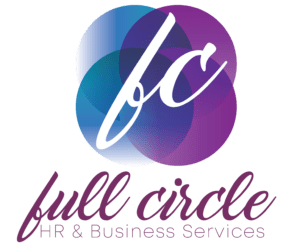Probation and the Minimum Employment Period
You may have come across the idea of a ‘3-month probation’ when hiring new employees, but did you know that the Fair Work Act doesn’t actually mention ‘probation’? In fact, the Act allows for up to 12 months to assess an employee’s suitability for the job with minimal risk of unfair dismissal – this is known as the ‘Minimum Employment Period’.
The concept of ‘probation’ has changed significantly over time, with the legislation updated to better serve businesses, especially small businesses, in managing the risk of unfair dismissal when dealing with unsuitable team members. It’s now clearer than ever what steps employers can take to ensure that ‘probations’ are an effective process for both the employer and the employee’s success.
What is a ‘Probationary Period’?
A probationary period is a phase at the beginning of a permanent or contract full-time or part-time employment relationship that allows the employer to evaluate the new employee’s competence, reliability, and fit for the job. It’s also a good opportunity for the employee to assess the business and to raise any challenges to their success in the role that may be supported.
Generally, the employer determines the length of the probationary period in the employment agreement. However, an award or registered agreement may provide otherwise. It’s important to note that a probationary period is not a separate employment period, and employees on probation receive the same entitlements as permanent full-time and part-time employees.
Probation and the Fair Work Act
The Fair Work Act 2009 does not use the term ‘Probation’. It is a contractual term, and there is generally no law covering what constitutes a “probation period”. Rather, the Act refers to a Minimum Employment Period based on the time the employee has worked in the business and the size of the business.
For small businesses with less than 15 employees, the minimum employment period is 12 months; otherwise, it is six months. During this minimum employment period, an employee may be terminated in accordance with the relevant provisions of the NES, industrial instrument, or contract.
For this reason, FCHR advise businesses to adopt a ‘6 month probation’ with a two-way review at 3 and before 6 months. This means you catch issues early and align with the minimum employment period applicable to your business, minimising your risk of unfair dismissal.
Performance Management During Probation
During the probation period, employers may consider holding regular meetings with the employee to review their performance. This facilitates providing necessary support and addressing any problems or concerns. Clear communication of expectations and job requirements provides employees with the best chance of passing probation successfully.
Remember, there’s no ‘set’ number of warnings or reviews an employer must give before deciding to terminate an employee (particularly in this period). This said, where there is process, there is reduced risk and greater opportunity to retain a worker that meets your expectations – saving time and money all round.
Employee Entitlements on Probation
It’s crucial to remember that employees on probation have the same entitlements as full-time or part-time employees who are not on probation. This includes accruing and accessing paid leave entitlements. If an employee does not pass their probation and you decide to terminate, they are entitled to receive written notice of their employment ending and be paid for any accrued unused annual leave hours as part of their final pay.
Extension of the Probationary Period
If unsure about a new employee’s suitability for the job but not ready to dismiss them, employers may consider extending the probation period. This can be done by agreement or if the employment agreement allows it, but only for the specified period stated in the contract.
For instance, you may have a 3 month probation in place, and extend to 6 months if performance is not yet meeting expectations, but probation should not in any way exceed the minimum employment period. If you have performance concerns after the probationary period, these must be addressed properly, afforded the correct procedural fairness, before termination can be considered.
It’s important to note that if the probation period extends beyond the minimum employment period and the employee is then dismissed, they may have access to unfair dismissal claims.
Your next step
Need support with your Probationary, Performance or Termination Processes?
Contact our team for support and templates to guide you with confidence.
Email: hello@fullcirclehr.com.au
Phone: 0402 974 775
Free Templates and Resources:
Fair Work Ombusman’s Templates to help you manage probation
Free Training:
Access Fair Work Ombudsman’s Award-Winning and FREE Training:
